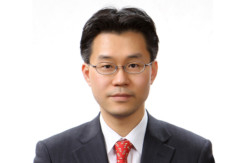
What makes you proud to be South Korean?
There are many things that make me feel proud of being Korean. One of those things is the Miracle on the Han River, which refers to the rapid economic growth that took place between the 1960s and the ’80s. The Han River passes through Seoul, the capital city. This economic boom was accompanied by democratisation and globalisation that transformed the country from the destruction of the Korean War to a wealthy and developed country with global influential economy and prominent multinational conglomerates.
Korea was one of the world’s poorest nations after the liberation from Japanese occupation (1910-45) and the Korean War(1950-53) aftermath. In the early 1960s, the country pushed ahead with export-oriented economic development plans. At first, the country’s major export items were mainly light industrial products or raw materials. In the 1970s, the country invested in heavy chemical facilities and laid the basis for the export of heavy industrial products.
At present, Korea has a number of industries that boast solid international competitiveness, such as electronics, memory chips, shipbuilding, iron/steel, and chemical industries. The foundation of such strong competitiveness was built during that time.
In 1960, South Korea’s exports amounted to $32.8 million (about Dh120.44 million); but by 2014 it reached $573.1 billion. In 1948, GDP per capita was an insignificant $60, whereas in 2014 it was $27,970.
What is unique about South Korea?
Korea is now one of the most modern and fast-changing countries. But we are still holding on to our heritage and traditional culture. For example — family comes first. We respect all people, especially the elderly, and we also tend to teach this to our children. People nowadays still bow for each other as a means of respect. Moreover, we use the honorific strictly.
What is the South Korean cultural identity?
The geographical conditions of the peninsula provided Koreans with opportunities and ample resources to obtain both continental and maritime cultures, which in turn enabled them to form unique culture. We Koreans have developed our own language, Hangeul, and Korean food, music, architecture, lifestyle and etiquette with pride of long history and elegant culture. Koreans are one ethnic group who has lived in the Korean Peninsula for more than 5,000 years.
What is your hometown like?
My hometown is Seoul, the capital city of Korea since 1394. It has more than 10 million residents and is divided into 25 administrative districts. Seoul is the country’s biggest business and cultural hub.
There are a number of high-rise buildings, while historic sites are well preserved. You can visit five Unesco World Heritage Sites in Seoul — Changdeokgung, Jeongneung, Jongmyo, the Royal Tombs of the Joseon Dynasty and Taereung/Gangreung.
The Economist Intelligence Unit ranked Seoul 15th in the list of “Overall 2025 City Competitiveness” regarding future competitiveness of cities.
What is your favourite Korean food?
I like Korean-style roasted beef or beef barbecue, galbi. It is generally made with beef ribs marinated with soy sauce, garlic and sugar. It is typically served with lettuce or other leafy vegetables used to wrap the meat in. One speciality of galbi is that we often enjoy it on the grill indoors, whereas other barbecues are typically being served outdoors. Once you taste it, you will never forget!
Which stereotypes about South Koreans are true/not true?
It is true that Koreans are hard-working. In fact, Korean employees work 2,124 hours per year, according to the Organisation for Economic Co-operation and Development’s (OECD) recent statistics, placing Korea second place after Mexico.
It is not true that all Koreans eat dog meat. Korea was an agricultural society with a cuisine rich in vegetables. Nowadays many Koreans have dogs as pets and regard them as members of the family.
What sights or experiences in your country are not to be missed?
Jeju Island is the largest island off the coast of the Korean Peninsula.
This volcanic island has a natural environment and has been listed as a Unesco Natural Heritage Site as “Jeju Volcanic Island and Lava Tubes” since 2007.







